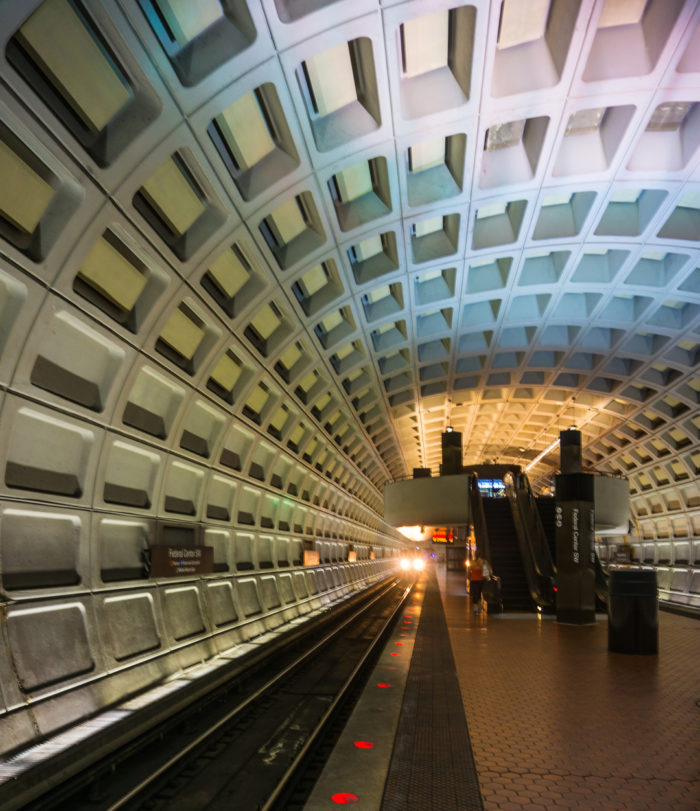
Image Credit: Teddie Bridget Proctor / CC Y-ND 2.0 / Flickr
Officials in Washington, D.C., say they may have to shut down portions of the Metro subway system for months because its piecemeal approach to maintenance is no longer sufficient.
The disclosure follows a shutdown of the entire Metro system on March 16 for 24 hours. Three-quarters of a million people use the system each weekday, so the inconvenience and cost were considerable.
The reason: frayed electrical cables discovered in at least 26 locations that posed an immediate danger. Closing the Metro was probably the safest thing to do.
Just two days previously, an electrical fire in a tunnel forced stoppages to busy commuter service. In September 2015 a train was stuck inside a tunnel, and passengers choked for over an hour as smoke from a fire was accidentally pumped into the train. One woman died. In the last six years, 15 people have died in seven separate incidents.
A system that opened to much fanfare in 1976 is now crumbling. It is a depressingly familiar story that is not limited to urban public transport. The U.S. has a major and growing infrastructure gap — though chasm is a more appropriate metaphor.
The quality of a country’s infrastructure is directly linked to its competitiveness, because a decent infrastructure makes businesses more productive and improves the quality of life. Why has the U.S. let its public transit slip so far?
From First to Third World
The American Society of Civil Engineers gives the nation’s infrastructure a D+. Its report from 2013 depicts a woeful tale of deferred maintenance. More than 70,000 bridges are in need of repair. We need around $1.7 trillion for our surface transportation alone.
The week that the D.C. Metro was closed, I was in Zurich, Switzerland. The contrast could not have been starker. There, a ticket is good for rail, bus, and tram. The vehicles are clean and efficient. Good public transportation is a widely shared experience and a deep source of pride. Most people in the country use public transport in the cities to get around. It is a vital part of urban public life.
In international comparisons, the U.S. is falling further behind. To fly from either Seoul or Shanghai into Los Angeles airport is to make the journey from a First World to a Third World airport. To fly into New York’s JFK from Zurich or most European capitals is to fly from the future into the past.
And when you arrive in Los Angeles or New York City airports, the public transport connections are often nonexistent or inadequate. If you fly into Dulles, the main international airport for D.C., you will wait in vain for a train to the city (although buses are available). The Metro has yet to link the city to the airport, 40 years after the system opened.
Now Switzerland, which ranks at the top globally for overall infrastructure, may be a reach for the U.S. But when the U.S. ranks 16th for infrastructure quality, easily outranked by countries such as France and Spain, then we should start worrying.
There are substantial costs to the decline of our public transportation system. Closures, accidents, and inefficiencies cost individuals and companies and reduce the efficiency of our national economy. Poor infrastructure means Americans spend $120 billion each year in extra fuel and lost time.
To some extent, this state of affairs should be no surprise.
Our competitors are out-investing us in the vital infrastructure necessary to make our economy efficient and internationally competitive. Even when our public infrastructure spending is higher than our competitors, it is less well-targeted because decisions are more politically motivated than based on economic rationality.
We seem unwilling to pay for public services. Our declining road system, for example, is funded by the Highway Trust Fund, which is derived from a gas tax of 18.4 cents per gallon. The tax has not been raised since 1993, and more fuel-efficient vehicles means less revenue. Raising the gas tax is not considered politically feasible, even in a time of declining gas prices.
What went wrong?
At least four reasons can be cited for the decline in the quality of urban public transportation.
The first is the early and continuing embrace of the private car as a form of urban transport. In Europe, expensive gas and restrictive land use measures kept people in dense cities, and urban growth followed along the lines of mass transit, reinforcing and consolidating their use.
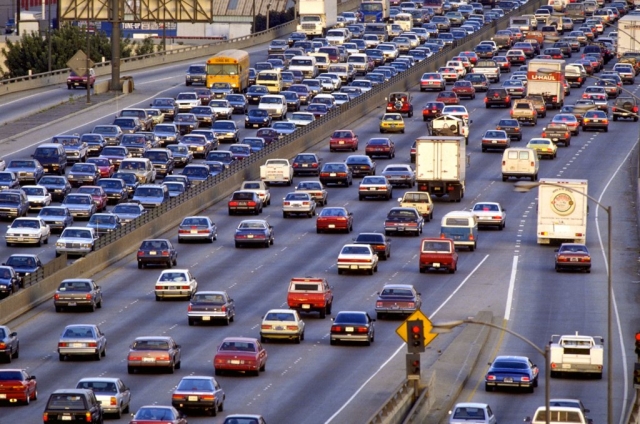
In the U.S., growth spread across a landscape of freeways and motorway exits, encouraged by federal investment in the national highway system in the 1950s. As low-density suburban sprawl spread, public transport became less viable. New suburbs and Sunbelt cities constructed in the last half of the 20th century were built around the private automobile.
Over time, Republican-dominated suburbs came to see mass transit as a special Democratic interest and voted accordingly. For example, the mayor of Nashville’s plans for public transport last year were blocked by state politicians and right-wing national interest groups.
Second, as cities were designed to meet the needs of the motorist, mass transit systems that had been owned by private companies were abandoned or effectively dismantled in the late 1940s and throughout the 1950s because they were losing money.
As a result, many mass transit systems were taken over by municipalities. This led to a high-cost, low-revenue system dependent on the vagaries of federal, state, and city funding. Meanwhile, car drivers were economic free riders, not charged for the social costs of their accidents, pollution, and congestion.
The third reason is that all infrastructure ages and needs costly maintenance and continual improvement, yet funding is often constrained.
Even when new transit systems were built, such as in D.C., or existing ones were upgraded, as in New York City and Boston, they still had to be maintained, which takes up large chunks of public money without the benefit of a ribbon-cutting ceremony.
Building something new gives politicians a photo opportunity; replacing a frayed electrical cable does not. And there are many other claims on government such as pensions, schools, Social Security, and a large military. Our infrastructure chasm is a quiet, slow-moving but relentless crisis only brought into focus when wires fray to the point of immediate danger.
Across the country, transit systems have a backlog of deferred maintenance. Chicago Transit Authority, for instance, spent $5 billion on infrastructure upgrades in the past five years, but needs another $13 billion. Cities in the U.S. have a repair backlog that amounts to $86 billion.
Private affluence and public squalor
Fourth, there is a deeper tension in the U.S., first noted by economist Kenneth Galbraith, between private affluence and public squalor.
Many of us, it seems, have lost faith in the public realm. The private car is the embodiment of U.S. individualism. The decline of our cities’ infrastructure is one expression of loss of faith in the public realm as a place of beauty and efficiency and an embodiment of what one journalist refers to as “our anger and our pessimism.”
This thinking has made our cities less about shared experiences and more a place of different lives and separated spaces.
There is some room for optimism. A series of reports highlight the advantage of investing more in public transport. And as more people want to live in cities in dense walkable neighborhoods, the demand for public transport is increasing.
Ridership rates vary by city and with the price of gas, but the overall usage trend is upwards. The top 10 transit systems carry 12.6 million people each workday.
And millennials lack their parents’ and grandparents’ love affair with the automobile. We may be at the cusp of a generational shift in attitudes to the car and mass transit. Cities and cars were never a good fit, something more people appear to be realizing.
Urban public transport may come to be seen as a more desirable, more sustainable, more equitable way of getting around the city. If only we can remember to ensure we have enough money to replace those electric cables before they pose a serious danger.
John Rennie Short is a professor in the School of Public Policy at the University of Maryland, Baltimore County. This post originally appeared at The Conversation.
Weekly Newsletter
Get building science and energy efficiency advice, plus special offers, in your inbox.




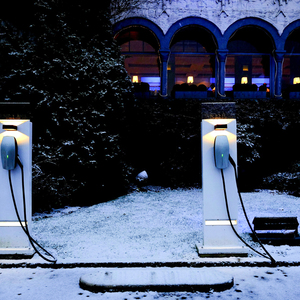
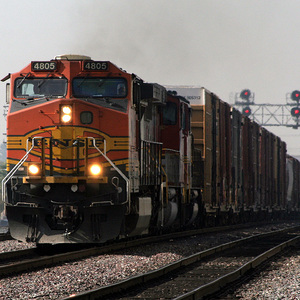
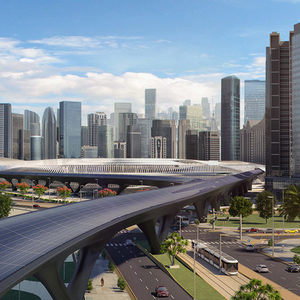
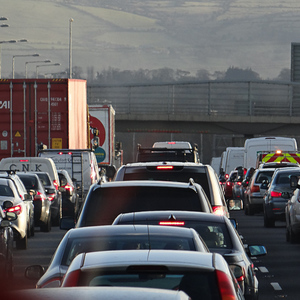






20 Comments
Not all is rosy across the pond. Germany of all places has
been deferring maintenance due to looming pension obligations.
http://www.spiegel.de/international/germany/low-german-infrastructure-investment-worries-experts-a-990903.html
Alas should we really compare ourselves to the relatively homogenous population of 8MM people known as Switzerland?
Homogeneous?
Switzerland has a far higher proportion of foreign born residents than the United States does.
@Stephen I'm thinking in terms of ethnic/racial homogenuity
German 65%, French 18%, Italian 10%, Romansch 1%, other 6.
Switzerland is also one the toughest countries within Europe to obtain citizenship.
C'mon now, they don't even speak the same language!
There is far more ethic/racial/cultural homogeneity to be found in places like Japan or Korea It's effectively impossible to immigrate or assimilate into Japan, and despite the fact that Okinawans on one end have a dramatically different look and dialect from the Ainu on the other it's still fairly culturally monolithic by western standards. Korea's diversity may be slightly greater, but maybe not. Switzerland is very cosmopolitan by contrast, though they all have decent public transportation.
Singapore is QUITE ethnically & culturally diverse, and has really world-class public transportation. It's not about diversity- it has more to do with geography, and politics.
In the ethnically-cleansed Balkans, Serbo-Croatian culture is still one language written in three alphabets with three or four major religions, and five-ish countries (depending on who is counting). The gauges of the railroads even changes at the borders(!)- how do the transportation systems there stack up relative to the US? How does it's diversity (even within any one of those countries) compare to Switzerland's?
The most distinquishing difference between US and the other first-world economies is probably geography- there is simply a lot more miles & miles of miles & miles to cover in North America than in Switzerland, with more room to park, and a greater need for personal transportation/cars. Once the investment is made in the car, public transportation is only appealing when it's dramatically more convenient or quicker. Developing rail infrastructure to easily travel even half way across the US isn't as practical as developing reasonable rail service from Sapporo to Osaka or from Zurich to Lausanne, or Seoul to Pusan, or from one end of the MRT to the far end in Singapore.
That's not to say that the US public transportation (and the roadways) aren't way overdue for major upgrades, only that the diversity aspect is a pretty minor one. The economic differences between urban & suburban are a factor in many US cities, but not all. US cities where the younger & wealthier are congregating in denser urban centers the public transportation sometimes improves, but not always. (I have a nephew in the bay area who opts to Uber to & from work rather than suffer the tedium of the BART system or drive.)
Response to Chris M
Chris,
Without conceding that ethnic homogeneity is relevant to this conversation -- I don't think that it is -- I think that it's important to get our facts straight.
Stephen Sheehy is right. Here is some information from an article that the New York Times published today: "Known for its religious tolerance since a civil war during the Reformation, Switzerland accommodates four national languages and has a higher percentage of Muslims (5 percent) than Britain. Roughly a quarter of Switzerland’s population is made up of foreigners."
Response to Charlie Sullivan
Charlie,
Your comment surprised me, so I looked it up.
The U.S. has a population density of 85 people per square mile.
Spain has a population density of 236 people per square mile.
France has a population density of 295 people per square mile.
So the population density of Spain is 2.8 times that of the U.S.
The population density of France is 3.5 times that of the U.S.
@Dana Agree, Geography is a big one as well as the
lack of gas tax increase. Eventually there'll be a "come to Jesus" moment because higher FE standards are eating into state budgets and as well all know States can't run deficits.
Something will have to be done.
@Martin I was reading between the lines when the author
wrote, "Over time, Republican-dominated suburbs came to see mass transit as a special Democratic interest and voted accordingly. For example, the mayor of Nashville’s plans for public transport last year were blocked by state politicians and right-wing national interest groups".
I live in Atlanta and it has been the same tired story here since the idea of the Metro was conceived.
What do you think the author meant?
@Martin thanks for correcting my mistake
I got the population densities wrong, and will correct my post above. Thanks to Martin for doubting me and checking. For your amusement, here's how I made the mistake: intoxicated with enthusiasm for the European way of doing things, I decided to look up population density per square km rather than per square mile. After a few clicks, I found a table that included the US and used km^-2. But what I didn't notice is that it also had a column in mi^-2, and I accidentally read that one instead. It turns out that the population of the US per square mile is similar to the population density in some European countries, per square km. It's only fair to measure countries in their own units, right? Just like it's only fair for the XPS industry to decide on their own standard for aging of insulation.
But it's still true that the US used to have a much larger fraction of transportation by transit, and our average population density has roughly doubled since then.
population density
Edit: I previous said something about needing to be careful not to overstate the population density argument, and then proceeded to not be careful at all, and to post some completely incorrect numbers which Martin corrects below.
Nonetheless, there are plenty of regions of the US where the population density is high enough to support transit.
Transit
I wrote a paper decades ago in either college or law school. It had something to do with intercity transportation. The only thing I remember was that once upon a time, you could travel from Portland Maine to Chicago by trolley car.
The Solution Can Only Be Political
Given that infrastructure can only be effected by "the Go'mnt," this is perforce a political issue.
The "Party of Fiscal Responsibility" has caught itself in a net of its own ideology. Economics 101 teaches that a free market depends directly upon infrastructure, because almost every trip involves a contribution to the economy: people going to work; people going to shop; truckers delivering raw material or finished goods for market; even trips for leisure contribute significantly to GNP.
Unfortunately, infrastructure requires investment that must come from taxes, and no good Republican can vote for any tax and hope to be re-elected in this political climate (a litmus test created by Republicans for Republicans). Even though it benefits all citizens AND the economy!
All citizens suffer when good governance is co-opted by a corrupt ideology.
By extension, when this ideology actively disallows public discussion of climate change, the future of the planet is gravely compromised.
Expensive
Population density aside, one of the things I think we overlook in the this country (blinded by our love affair with the automobile) is how expensive it is to own and operate a car. Not just in terms of money but time as well. I'd also note how much this adversely effects lower income brackets. I would be interested to know if anyone has added up the full cost of cars to the individual and to society. Some people will always enjoy diving but I'd say for many having to drive yourself from A to B is a horrible waste of time. Just think of how many potentially productive hours are spent commuting.
General Thoughts
Regarding transportation----- I love public transportation, and when it makes sense, I use it. I also love my car, and use it when that makes sense. If you live in a rural area, you need a car/truck. Also, please note that not everyone wants to live in a high-density quasi Utopian area.
Point being: we get to choose. What a great country.
Regarding politics----- I suspect that many people vote with their wallet. So, if you want more public transportation, add it to the list of "free" stuff offered by some of the current political candidates. Sell it as "everybody-rides-for-free", and I'll bet you would get lots of votes.
Regarding free discourse on climate change as mentioned in Post #12 above------I think most Americans love and support free discourse. After all, its guaranteed by the Constitution........or is it?
I thought this was a fairly safe assumption until I read about the following:
A few months ago, a coalition of 17 state Attorney Generals announced a program to prosecute "deniers" for committing fraud. Also the US AG has referred similar sentiments to the FBI. In addition, I recently saw one of the Kennedy clan on TV stating that "deniers" should be tried for treason. What? I'm not making this up.
So, the message is: you will believe what we tell you, or you will be punished.
Regardless of your position or opinion on human-caused climate change, this affront to free speech is scary stuff. Don't let the ends justify the means. The first amendment would be "gravely compromised". If they go forward with this, I think you might also see a back-lash from a free society. It smacks of desperation and tarnishes any effort to convince folks that human-caused climate change is real.
The Civil Engineers always give low grades to US Infrastructure
...because to raise them would require hiring many more Civ Es!
We are in the midst of two major revolutions in transport:
1) dynamically priced tolled highways and express lanes
2) Self driving cars.
In my area (Jacksonville, Florida), public transportation is very down-market, used only by those who can't maintain a drivers license or who can't afford cars.
Personally, I'm convinced that our transit buses, each costing hundreds of thousands of dollars to buy and the same again to operate, have deep tinted windows mostly to hide the fact that they drive around virtually empty. Buses pulling in and out of stops on arterials, or stopping in travel lanes, wreak far more damage on traffic flow, efficiency and pollution than they'll ever save in reducing # of cars on the roads.
Someone needs to run the numbers comparing our bus system with simply handing out vouchers for Uber or Lyft to those few who actually use public transit.
I've long advocated raising gas tax by a penny per gallon per month for as long as necessary to properly fund decent roads. That slow planned rise would give everyone enough time to acclimate to increased fuel costs. That would also incentivize high mpg hybrid and pure electric vehicles.
It will be interesting to see how far the trend in dynamically priced tolled lanes carries forward the backbone of our highway system, namely its multi-lane limited access superhighways. Florida and Texas lead with tens of billions worth of these projects.
Amazing facts
"A few months ago, a coalition of 17 state Attorney Generals announced a program to prosecute "deniers" for committing fraud. Also the US AG has referred similar sentiments to the FBI."
Um, no. They want to prosecute energy companies, i.e. fossil fuel companies, that have done their own in-house research programs that confirm the human causation of global warming due to oxidation of hydrocarbon fuels. What some of them have done is exactly analogous to the history of tobacco companies doing their own in-house studies of the cause of lung cancer, and then denying that smoking tobacco causes lung cancer. This is the normal MO of many pro business conservatives changing the facts to suit their narrative. When you can't win an argument on the facts then provide your own. Especially if involves money going to the business interest side of the ledger. No wonder so many people believe that reality has a well known liberal bias.
Facts
Are these studies that you mention public information? They must be since you indicate that they are reporting false results. If so, why not let the scientists set them straight?
I do not know all the ins and
I do not know all the ins and outs of the investigation as I'm not privy to that. What I'm saying is that, just like the tobacco companies, Exxon/Mobil knew the reality of man-made global warming due to burning fossil fuels forty years ago. See this:http://www.scientificamerican.com/article/exxon-knew-about-climate-change-almost-40-years-ago/
I assumed that there were more multinational energy companies with similar circumstances due to your comment. If there is only the one that is documented then my error was taking your argument at face value. The entire point is that this issue is not about the ignorance of the science by Exxon/Mobil. It was their willful deceit and how they used their enormous financial resources to lobby and influence government and media outlets to doubt the science... science that they already knew to be accurate.
One more
Here's a much more comprehensive article:
https://insideclimatenews.org/news/15092015/Exxons-own-research-confirmed-fossil-fuels-role-in-global-warming
EXXON
I read the articles you cited, and while I was at it, I read two articles with opposing views. That's my point---free and open debate should be allowed without government intimidation. Also, I don't quite get the Tobacco analogy. If I understood the article you cited, the Exxon studies were available in the public archives. If I recall the woes of the tobacco industry, it had to do with covering up their studies.
So, Exxon changed their opinion----Why? Greed maybe, or maybe just because they were no longer certain of the original results? Or maybe the predictions of the original studies weren't happening? Also, if lobbying is a crime, then we need to build some more jails.
I'm not trying to talk you out of your opinion and I respect your right to believe and talk about whatever you want to, and I'm not espousing a position on climate change. But, my personal opinion is that this is a frightening case of government overreach. And that's all I have to say about it--thanks for the free and open debate.
Log in or create an account to post a comment.
Sign up Log in